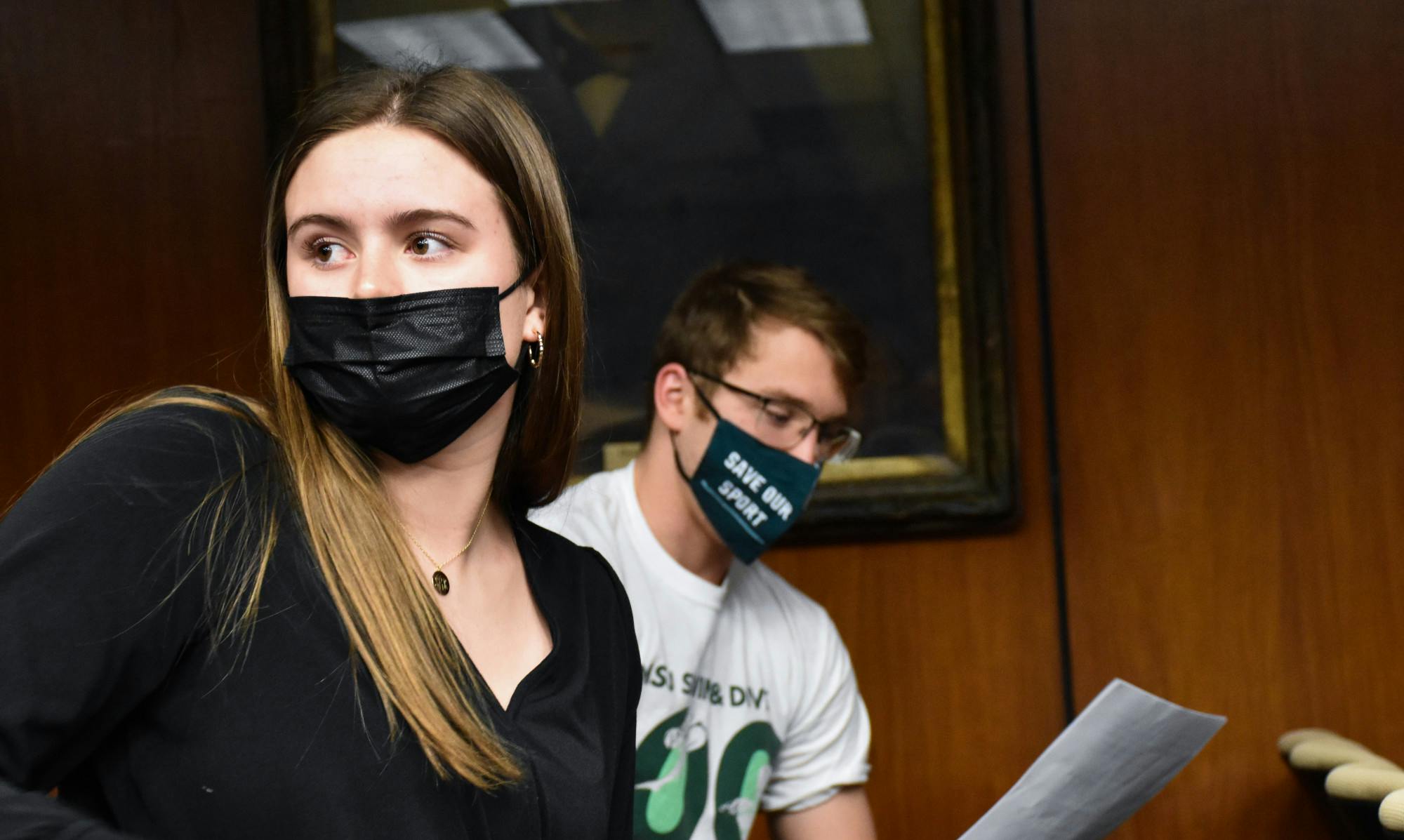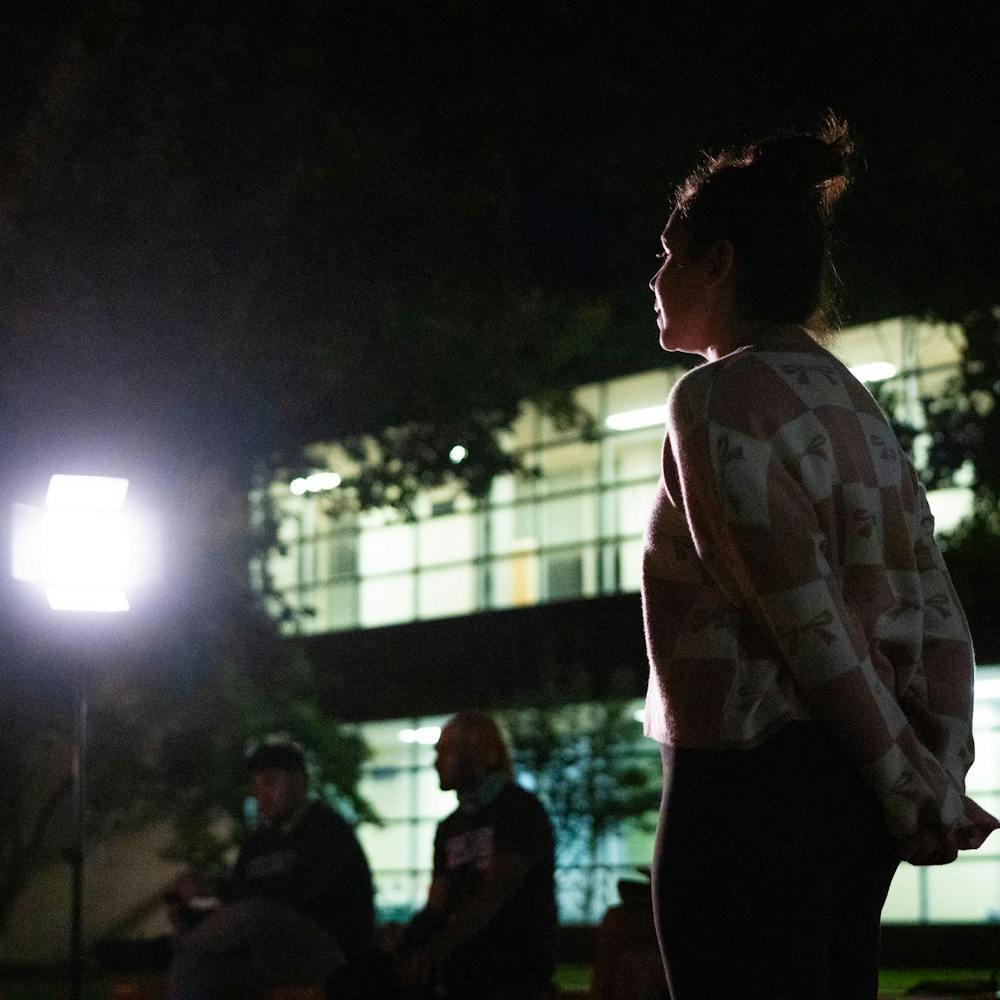MSU was granted an extension and given until Nov. 18 to submit a compliance plan to the district court in the women's swim and dive team lawsuit. This comes after the university asked for more time to submit a Title IX compliance plan, hoping to delay until the U.S. Supreme Court responds to its request for review of the lawsuit. The attorney argued submitting a plan prior to the decision would cause irreparable harm to the university.
The next step is for the Supreme Court to agree to hear the case.
This extension was granted by way of a motion to stay on the preliminary injunction on Sept. 15.
The preliminary injunction was partially granted on July 21, meaning there was a "substantial likelihood of success on the merits" for a Title IX violation. The district court judge ruled in August that the university was not in compliance with Title IX and was given 60 days, until Oct. 7, to submit a plan to rectify the violation.
Former MSU swimmer Sophia Balow and her attorney responded yesterday, requesting that the motion for stay should be denied. In order to request a motion for stay, the defendants need to demonstrate four items: It is likely to succeed on the merits, it will suffer irreparable harm in the absence of a stay, a stay will not cause substantial injuries to other parties interested in the proceeding and the public interest favors a stay.
Attorney Lori Bullock of the defense said the "burden is on MSU to show irreparable harm."
Irreparable harm
Attorney Scott Eldridge, representing the university, said if the Supreme Court grants MSU's petition, then the district court's order to make a compliance plan wouldn't even be on the table. He also said that creation of a compliance plan and committing itself "unnecessarily" to the district court's order would cause harm.
This irreparable harm, he argued, would happen if the Oct. 7 compliance plan was publicized and undergoes scrutiny by the public. He said this scrutiny could impact MSU recruiting, scholarships, rosters, coaches and even facilities.
Attorney Lori Bullock of the defense suggested that the compliance plan could be placed under seal to eliminate harm. Judge Hala Y. Jarbou, however, said the court is not usually inclined to place the documents under seal.
"Call me cynical, your Honor," Eldridge said in response before implying the plaintiffs may share the compliance plan with parties outside of the court's order, possibly allowing the documents to reach the public.
Bullock said the council has never violated the court's order before, arguing Eldridge's assumption does not have a basis.
Judge Hala Y. Jarbou, however, said the court is not usually inclined to place the documents under seal anyway, siding with the university.
Rests on the Supreme Court decision
MSU asked the Supreme Court to review the lawsuit in July. Eldridge said that MSU won't hear from the U.S. Supreme Court about a possible hearing until November and it would possibly announce its decision as early as Nov. 7. This timeline, however, doesn't line up with the Oct. 7 due date given to MSU to create a compliance plan, so MSU asked for more time.
Bullock expressed concern with the timeline, suggesting the Supreme Court may delay the process even past November and that there is nothing that requires the court to take immediate steps or guarantees a hearing. She said ongoing gender discrimination will continue until a compliance plan will be created.
Jarbou said because this motion for stay is only limited — a "brief delay" — that it is not reasonable to assume the Supreme Court will make a decision much later than November.
Other factors
The request for a motion to stay was submitted on Sept. 15, not in the weeks following the initial August ruling. The plaintiffs noted this timeline, asking why it took so long for them to file a motion for appeal.
Eldridge said the plaintiffs "understated" the issue and that "these sorts of issues are complex" because of the number of factors needed to be considered when creating a compliance plan like roster sizes, teams, determining participation gap, enrollment, etc.
Support student media!
Please consider donating to The State News and help fund the future of journalism.
Jarbou said because of these factors and the time it takes to file, not granting the stay would cause the university some disruption.
Discussion
Share and discuss “Court grants MSU extension to submit Title IX compliance plan” on social media.







